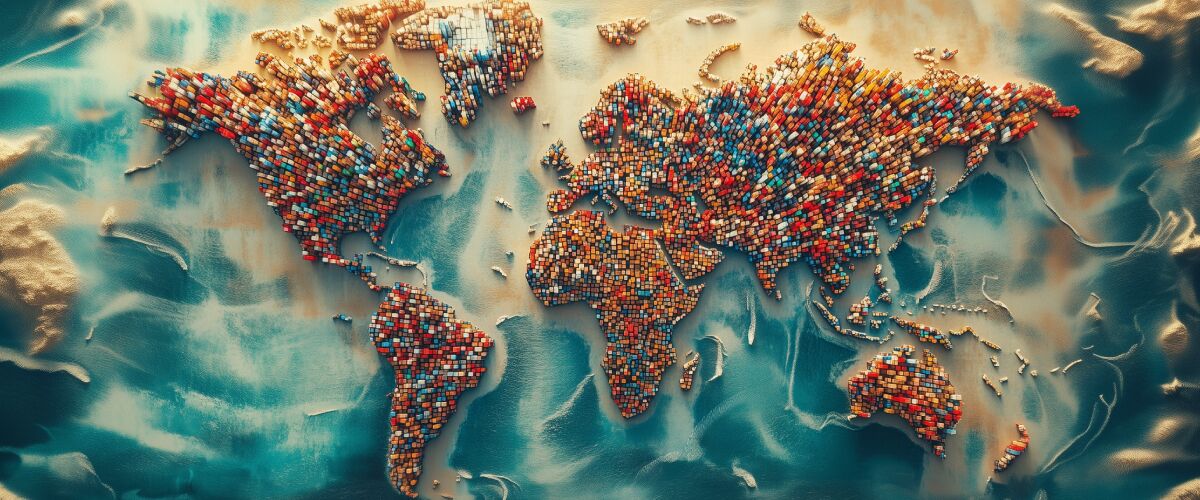Navigating the Complex Web of US Sanctions: A Crucial Guide for Global Businesses and Individuals
Every year, the US government enforces a vast and complex network of sanctions, aimed at curbing activities that threaten national security, foreign policy, or the economy. These sanctions are designed to target individuals and entities involved in illicit activities. However, their impact often extends far beyond the intended targets, affecting businesses and individuals globally. Understanding how these sanctions work and their implications is crucial for anyone engaged in international trade or finance.
Understanding OFAC and Its Role
The US Treasury’s Office of Foreign Assets Control (OFAC) plays a pivotal role in administering and enforcing these sanctions. OFAC maintains several watchlists, with the most prominent being the list of “Specially Designated Nationals” (SDNs) and “Blocked Persons.” These lists are frequently updated, sometimes on a weekly basis, and include thousands of names. They encompass individuals and entities associated with foreign regimes, terrorists, and international narcotics traffickers. Others deemed threats to the United States are also included on these extensive lists.
In November 2021, for example, the list was updated with over two pages of names, most of which appeared to be of Middle Eastern origin. One such entry read:
Free Wealth Protection Insights
Enter your email below to receive our weekly briefings on better ways to preserve your wealth, legally reduce your tax bill, and better protect what you’ve worked hard to build.
The Nestmann Group does not sell, rent or otherwise share your private details with third parties. Learn more about our privacy policy here.
PLEASE NOTE: This e-series will be delivered to you via email. You should receive your first message minutes after joining us. By signing up for this course, you’ll also start to receive our popular weekly publication, Nestmann’s Notes. If you don’t want to receive that, simply email or click the unsubscribe link found in every message.
AL-SHAER, Saleh (a.k.a. ALSHAER, Saleh Mesfer; a.k.a. ALSHAER, Saleh Mesfer Saleh; a.k.a. AL-SHAER, Salih Misfer; a.k.a. “ABU YASSER”), Sana’a, Yemen; DOB 1965; alt. DOB 1966; alt. DOB 1967; POB Razih District, Saada Governorate, Yemen; nationality Yemen; Gender Male (individual) [YEMEN].
The Ever-Expanding Scope of Sanctions
Since the beginning of 2021, nearly 160 pages of names have been added to the SDN list. As of November 2021, the entire list spans more than 1,600 pages and contains about 6,300 names.
But what exactly are these sanctions programs, and why are they so extensive? OFAC’s webpage provides some insight:
“…administers and enforces economic and trade sanctions based on U.S. foreign policy and national security goals against targeted foreign countries and regimes, terrorists, international narcotics traffickers, those engaged in activities related to the proliferation of weapons of mass destruction, and other threats to the national security, foreign policy, or economy of the United States.”
In other words, the SDN list is just one part of the broader sanctions enforcement landscape. There are additional sanctions lists targeting specific sectors or regions, such as the “non-SDN Palestinian Legislative Council” and “non-SDN Chinese Military-Industrial Complex Companies.” Additionally, there are 36 separate sanctions programs against countries ranging from Belarus to Zimbabwe. Businesses involved in international trade, especially in sensitive industries like medical device manufacturing, need to be acutely aware of these sanctions. For instance, certain medical devices require specific authorization for export to Iran.
The Cost of Non-Compliance
Avoiding interactions with anyone on OFAC’s various watchlists is critical, as the penalties for violations can be severe. OFAC operates under the authority of the International Emergency Economic Powers Act (IEEPA). The civil penalties for violating this law can be substantial. Fines may reach up to $311,562 or twice the amount of the transaction, whichever is greater. If someone willfully attempts to commit, conspire, or assist in violating this law, they could face fines up to $1 million. Additionally, they may be sentenced to up to 20 years in prison, or both.
IEEPA also includes draconian civil forfeiture provisions. In a standard civil forfeiture case, the government is supposed to prove its case before a judge. But under IEEPA, assets can be seized administratively without a court hearing. If you want your property back, you must prove that it isn’t subject to confiscation—and this is done not before a court, but an OFAC tribunal. OFAC’s decision is final, with no right to appeal in court. The justification? The government’s determination is presumed correct in the context of a national emergency.
Global Implications and the Challenge of False Positives
Dealing with any person, entity, or country on these lists can result in these penalties, even for minor infractions. For example, theoretically, selling a glass of lemonade to someone on the SDN list could potentially lead to serious legal trouble. Similarly, importing something as harmless as Cuban cigars could pose similar risks. To avoid these severe consequences, businesses worldwide subscribe to OFAC compliance services. These services help screen prospective clients and transactions to ensure compliance with US sanctions.
However, these services often flag partial name matches, leading to frequent false positives. Individuals with names like “Hassan” or “Mohammed” might find themselves denied bank accounts, health insurance, housing, or even employment due to these screenings. A 2014 analysis found that between 50% and 70% of individuals flagged by OFAC compliance services were false positives. In another case, screening six million names in a health insurance company’s database resulted in 6,000 false positives and not a single real match.
The Ethical and Legal Dilemmas
If OFAC’s watchlists aren’t effective at accurately identifying threats, what purpose do they serve? Some argue they mainly deter businesses and individuals from engaging with those whose names might appear on these lists, especially common names in certain ethnic or religious communities. This raises serious ethical and legal concerns, particularly around discrimination and due process.













